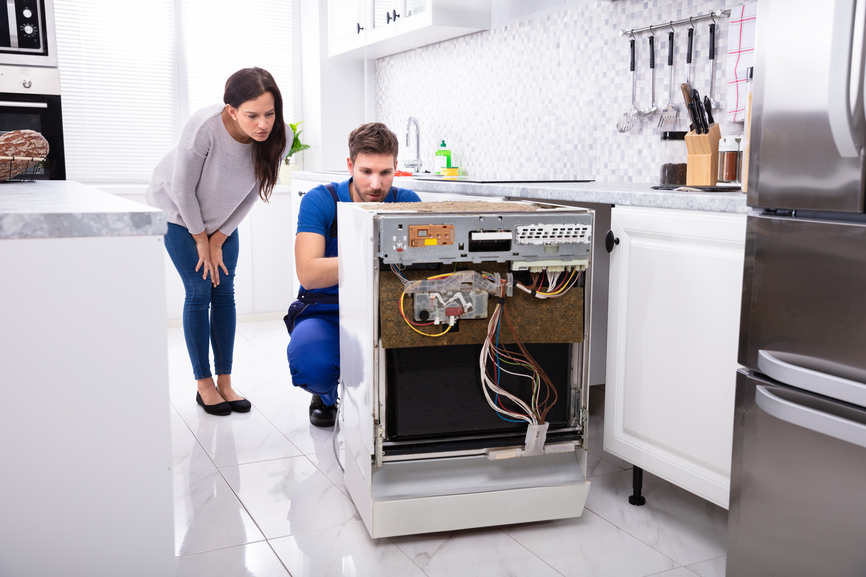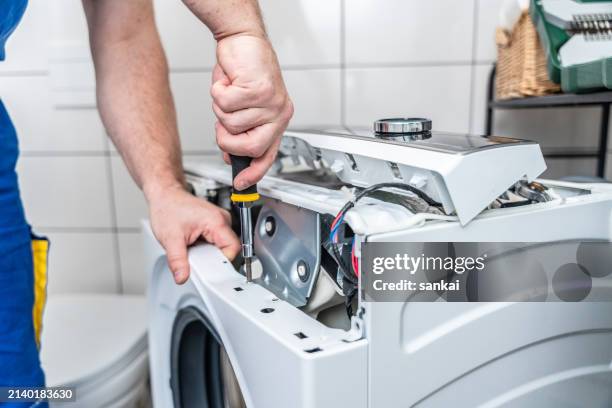The Ultimate Overview to Comprehending Device Repair Work in your home
When your fridge stops cooling down or your oven rejects to warm, it can really feel frustrating. Recognizing device fixing in your home can save you money and time. You'll learn to acknowledge symptoms, make use of necessary tools, and adhere to an organized troubleshooting process. Yet before you begin, there are crucial safety and security precautions you require to take into account. What are one of the most typical problems, and how can you fix them? Let's discover the fundamentals.
Common Home Appliance Issues and Their Signs
When your devices start acting up, it's important to acknowledge the indications early. Neglecting them can cause bigger problems and expensive repair work. If your fridge isn't cooling down correctly, you may notice cozy areas or condensation forming. This might indicate a falling short compressor or a blocked vent.Your dish washer may reveal problems through unclean recipes or uncommon noises throughout cycles. If you listen to grinding or clanking, it's time to investigate.A cleaning device that will not rotate or drain can leave you with soggy laundry, suggesting a blocked drain or a malfunctioning pump.Lastly, if your oven's temperature level appears off or it takes permanently to pre-heat, you might be taking care of a faulty thermostat. By staying sharp to these signs, you can resolve concerns prior to they escalate right into significant repairs.
Essential Devices for Device Repair Work
When you're tackling home appliance fixings at home, having the right devices is important. Standard hand tools like screwdrivers and pliers will certainly assist you disassemble and take care of various appliances, while electric screening gadgets assure you're functioning securely with wiring. Allow's go over what you need to begin on your repair work journey.
Fundamental Hand Devices
Having the right tools is important for effective device repair in your home. Begin with a reputable screwdriver set, consisting of both flathead and Phillips types, as screws are typical in device setting up. Pliers are additionally vital; they aid with gripping, turning, and reducing cables or tiny elements. A pair of needle-nose pliers can reach difficult situations quickly. You'll need a good adjustable wrench for tightening up or loosening up nuts and bolts. An energy blade comes in handy for puncturing packaging or insulation. Don't forget a tough workbench or surface to securely arrange your devices and parts. With these standard hand tools, you'll be well-prepared to deal with most appliance fixings that come your way.
Electric Testing Devices
Along with fundamental hand tools, electrical testing devices play an essential role in home appliance fixing. These tools aid you detect electrical issues and warranty devices operate securely. A multimeter is vital; it determines voltage, current, and resistance, enabling you to pinpoint troubles quickly. A non-contact voltage tester is another must-have, allowing you discover real-time cords without making straight get in touch with, enhancing your safety. Secure meters are fantastic for gauging current circulation in cables without separating them, saving you effort and time. Furthermore, circuit testers can promptly inspect if outlets are functioning appropriately. By utilizing these tools, you'll streamline your troubleshooting procedure and boost your fixing skills, making appliance upkeep a great deal less complicated.
Step-by-Step Overview to Diagnosing Home Appliance Issues
When your device breaks down, it can be discouraging, but detecting the concern doesn't have to be frustrating. You'll find out to determine typical problems and use efficient troubleshooting strategies. Allow's go through the actions to obtain your home appliance back in functioning order.
Common Appliance Problems

Fixing Techniques Described

Repairing Significant Cooking Area Appliances: A Closer Look
Have you ever before asked yourself exactly how to deal with common issues with your kitchen home appliances? Repairing major kitchen home appliances like fridges, ovens, and dish washers can be much easier than you believe. Beginning by identifying the trouble-- whether it's a fridge not cooling down or an oven that will not heat up. Typically, a simple reset or inspecting the power resource can address the issue.For refrigerators, clean the condenser coils and check the door seals. If your stove's not home my explanation heating, inspect the home heating component and thermostat. Dish washers might simply need a clean filter or a reset to obtain them back at work. Constantly unplug the device prior to diving right into repairs to guarantee your safety.Don' t fail to remember to get in touch with the individual handbook for details troubleshooting tips connected to your model. With a little bit of perseverance and the right devices, you can with confidence tackle home appliance repair work and conserve cash in the process!

Troubleshooting Laundry Appliances: Tips and Techniques
When your laundry devices start breaking down, it can really feel frustrating, but fixing them does not need to be a problem. Begin by inspecting the power supply. Verify the appliance is plugged in and the electrical outlet is functioning. Next off, evaluate the door or lid button; a defective button can prevent the device from operating.For washers, if it's not spinning, look for unbalanced loads. Redistributing the garments may solve the issue. If your dryer isn't heating, clean the lint filter and check the vent for blockages.Listen for uncommon sounds; they can show a problem. If your appliance is dripping, examine the hoses for splits or loose links. Paper any error codes displayed on digital screens, as they can assist you in identifying the concern. Consult the user handbook for certain troubleshooting suggestions associated to your version.
Safety Precautions to Take During Repairs
Before you start any kind of appliance repair work, it's vital to prioritize safety to stop accidents or injuries. Initially, disconnect the home appliance or transform off the breaker to ensure no power reaches it while you work. Usage insulated tools to lessen the risk of electric shock. Wear safety goggles and gloves to secure yourself from sharp sides or debris (Dependable Refrigeration & Appliance Repair Service Washing Machine Repair).Make specific your office is tidy and well-lit, so you can see what you're doing. Keep youngsters and animals green appliance repair away from the location to avoid diversions and potential risks. If you're dealing with gas devices, be added careful; look for leaks prior to proceeding.Take your time, and do not hurry through repair work. If you feel unclear regarding any action, it's much better to stop and study than to guess. Adhering to these safety measures will certainly help create a more secure atmosphere for your do it yourself device repair project
When to Call an Expert for Aid
Just how do you know if it's time to employ an expert for appliance repair services? If you've attempted standard troubleshooting without success, it's a clear sign. For circumstances, if your appliance still will not start or reveals unusual sounds after resetting it, do not be reluctant to look for specialist help.When you see leakages, smoke, or shedding scents, prioritize security and call a pro instantly. These concerns can result in even more considerable damage or pose dangers to your home.Also, if your home appliance is under guarantee, speaking to a professional is typically the best path. They can ensure that fixings won't invalidate your service warranty, saving you money in the long run.Finally, if you're unsure or uneasy with complicated repair work, it's wise to leave it to the experts. Remember, taking on complex concerns without the right proficiency can result in pricey hop over to these guys blunders. Count on a professional when in uncertainty!
Regularly Asked Inquiries
How Can I Protect Against Home Appliance Issues in the Future?
To stop device problems in the future, you must carry out normal maintenance, check for wear and tear, tidy filters, and prevent overloading. Remaining proactive will certainly aid expand their life expectancy and maintain them running smoothly.
What Are the Many Typical DIY Home Appliance Repair Mistakes?
You might overlook safety and security precautions, avoid repairing actions, or utilize incorrect tools when attempting do it yourself home appliance fixings. Hurrying the procedure or neglecting maker guidelines can cause even more substantial problems and expensive mistakes. Remain individual and informed!
How Do I Know if a Part Demands Replacement?
You can tell if a component requires replacement by checking for uncommon noises, leaks, or irregular efficiency. If the device has a hard time to operate correctly or shows visible damage, it's likely time for a replacement.
Can I Use Generic Components for Home Appliance Services?
Yes, you can use common parts for home appliance repairs, however ascertain they're compatible - Washer dryer repair service Dependable Refrigeration. Common parts may conserve you cash, however they could affect performance or durability, so weigh your alternatives meticulously before making a choice
What Guarantees Cover Appliance Repair Works?
A lot of appliance guarantees cover repair services for producing issues, however they typically omit damages from misuse. Check your warranty terms very carefully, as some may require utilizing licensed technicians and original components for protection to stay legitimate.